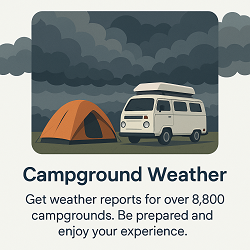Williams-brice Stadium, SC Weather Forecast and Current Conditions
Current Conditions From Nearby Local Station Switch to Metric Units

Feels Like 29°F
at
Current Conditions From Nearby Local Station Switch to Metric Units

Feels Like 29°F
at
Point Forecast at a Glance







7-Day Temperature Trend
Week Ahead Summary
High temperatures climb from 49°F to a high of 76°F by week's end. Mostly dry conditions with only one day showing rain chances.
Climate Context
This week's forecast shows temperatures running 2°F above the historical average for November. Normal highs for this period are around 66°F with lows around 41°F.
This Date in Weather History
1911 - The central U.S. experienced perhaps its most dramatic cold wave of record. During the early morning temperatures across the Central Plains ranged from 68 degrees at Kansas City to 4 above North Platte NE. In Kansas City, the temperature warmed to a record 76 degrees by late morning before the arctic front moved in from the northwest. Skies become overcast, winds shifted to the northwest, and the mercury began to plummet. By early afternoon it was cold enough to snow, and by midnight the temperature had dipped to a record cold reading of 11 degrees above zero. Oklahoma City also established a record high of 83 degrees and record low of 17 degrees that same day. In southeastern Kansas, the temperature at Independence plunged from 83 degrees to 33 degrees in just one hour. The arctic cold front produced severe thunderstorms and tornadoes in the Mississippi Valley, a blizzard in the Ohio Va
More on this and other weather history
Williams-brice Stadium, SC 7 Day Weather Forecast Details
Tuesday Nov 11

Day: Sunny, with a high near 49. West wind 3 to 8 mph.

Night: Clear, with a low around 34. Southwest wind around 6 mph.
Wednesday Nov 12

Day: Sunny, with a high near 64. West wind 6 to 10 mph, with gusts as high as 24 mph.

Night: Clear, with a low around 41. West wind 2 to 7 mph.
Thursday Nov 13

Day: Sunny, with a high near 68.

Night: Mostly clear, with a low around 40.
Friday Nov 14

Day: Sunny, with a high near 70.

Night: Clear, with a low around 44.
Saturday Nov 15

Day: Sunny, with a high near 74.

Night: Mostly clear, with a low around 51.
Sunday Nov 16

Day: Sunny, with a high near 76.

Night: A slight chance of rain after 7pm. Partly cloudy, with a low around 52.
Monday Nov 17

Day: A slight chance of rain. Mostly sunny, with a high near 73.
Sun & Moon Monthly
Sunrise 6:54 AM
Sunset 5:24 PM
Last Light 5:51 PM
Moonset 1:02 PM

Weather Near Williams-brice Stadium
Contiguous United States Extremes
Mon's High Temperature
100 at 2 Miles West Of Pala, CA
Tue's Low Temperature
10 at Mount Washington, NH and Snowshoe, WV
Weather Folklore
Springs start to flow just before a rain.

Current subscribers - login to your ClearSky account
How We Provide Better Local Weather
Current conditions: We use the nearest available station to your location - including professional MESONET/MADIS and local weather stations - often miles closer than regional airports.
Forecasts: National Weather Service point forecasts predict for your specific area, not broad regional zones, making them far more relevant to your location.

